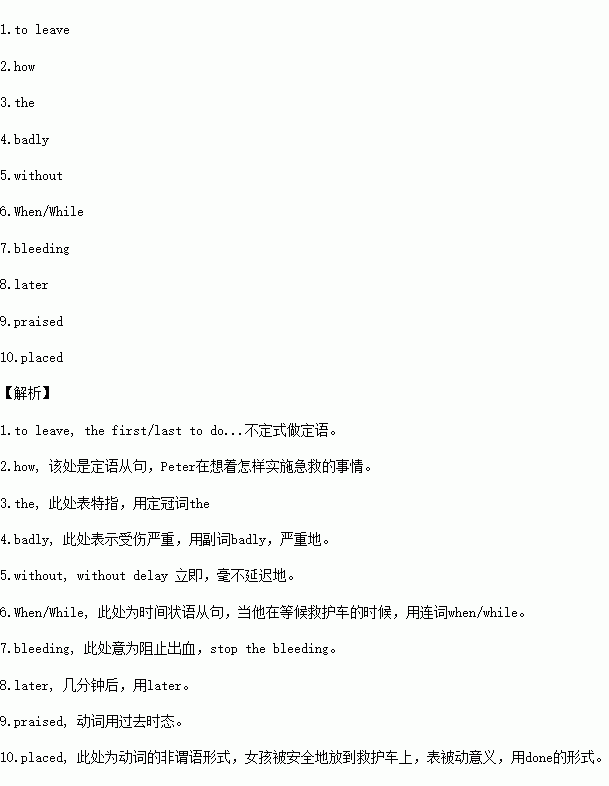题目内容
阅读下面材料,在空白处填入适当的内容(1 个单词)或括号内单词的正确形式。
The first aid knowledge acquired in class may make a difference to others. One day, Peter, the last one1.______(leave) school, walked back home, thinking about the class, which was about 2._______ to give first aid. Suddenly, he saw a girl lying on the ground with blood flowing out. Obviously, 3.______ girl was hit by a vehicle, got 4.______(bad) injured and lost her consciousness. Peter dialed “120” 5.______ delay to call an ambulance. 6._______ he was waiting for the ambulance, according to the first aid knowledge, he took out his handkerchief and tried to stop the 7.________(blood). Several minutes 8._________(late), the ambulance arrived. The doctor did something urgent with the girl and 9._________(praise) Peter. Then 10.______(place) safely onto the ambulance, the poor girl was sent to the hospital immediately and saved at last.
 天天向上一本好卷系列答案
天天向上一本好卷系列答案 小学生10分钟应用题系列答案
小学生10分钟应用题系列答案

